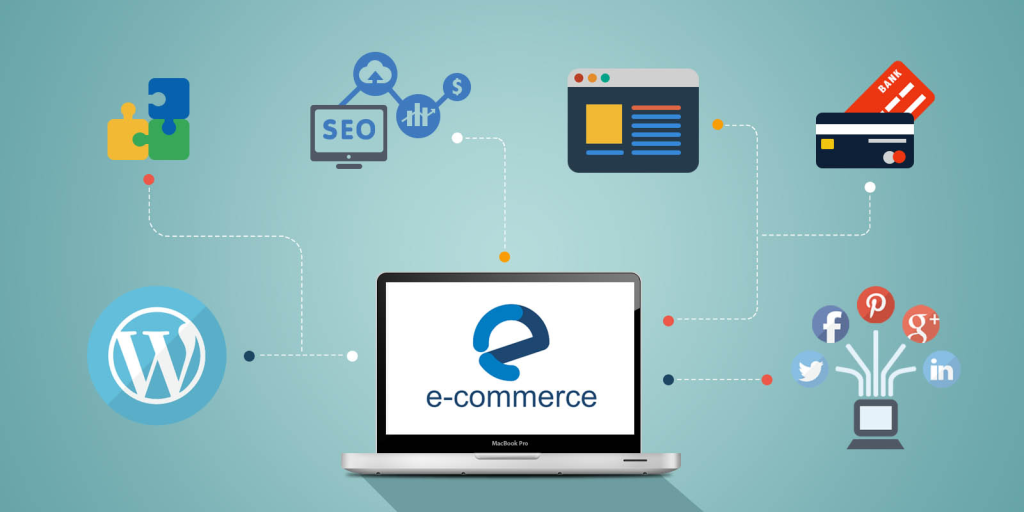The Beginner’s Guide to Winning With E-commerce SEO

Launching an e-commerce store is an exciting venture. You have the products, the website, and a vision of building a successful online business. But here’s the reality—without visibility, even the best online store will struggle to get sales. That’s where Search Engine Optimization (SEO) comes in. SEO is not just about getting traffic; it’s about attracting the right audience—people who are actively searching for what you sell. For beginners, understanding SEO may feel overwhelming, but with the right approach, it can become your strongest tool for growth.
At its core, e-commerce SEO is about making your online store easy for both search engines and customers to find. From keyword research to site speed, every detail plays a role in how high your store ranks in search results. And the best part? Unlike paid advertising, the benefits of SEO compound over time, creating long-term visibility for your brand.
Supporting Online Growth
In today’s digital-first world, businesses don’t have to face these challenges alone. Worth IT Solutions is an innovative online brand designed to help businesses thrive through digital services. Specializing in creating engaging visuals quickly and efficiently, it provides online brands with the tools they need to stand out. With a strong global presence, Worth IT Solutions empowers businesses to save time, enhance their digital marketing efforts, and connect with customers more effectively.
Why E-commerce SEO Matters
When customers look for products online, they rarely go past the first page of search results. If your store isn’t visible there, you’re missing out on potential sales. SEO ensures that your store appears in front of the right people, boosting visibility, credibility, and ultimately, revenue.
Key benefits of e-commerce SEO include:
- Increased organic traffic without relying solely on ads.
- Higher trust and credibility when appearing on search engines.
- Long-term growth and reduced marketing costs.
Start With Keyword Research
Keyword research is the foundation of e-commerce SEO. It helps you understand what your customers are searching for and how to align your product listings with those terms.
Tips for beginners:
- Use free tools like Google Keyword Planner or Ubersuggest.
- Focus on long-tail keywords (e.g., “organic cotton baby clothes” instead of “baby clothes”).
- Analyze competitors to see which keywords bring them traffic.
Optimize Product Pages
Each product page should be unique, informative, and optimized for both users and search engines. Common mistakes include duplicate content and generic product descriptions. Instead, write compelling copy that highlights product benefits, uses relevant keywords, and encourages buyers to act.
Checklist for product page optimization:
- Include the target keyword in the title and description.
- Add high-quality product images with alt tags.
- Use clear, keyword-rich URLs (e.g., /organic-bamboo-bedding).
- Highlight reviews to build trust and improve rankings.
Improve Site Speed and Mobile Friendliness
Slow-loading sites frustrate users and lead to high bounce rates, which negatively affect SEO. Most shoppers today browse and buy from their mobile devices, so ensuring your site is responsive and fast is crucial.
Ways to improve site performance:
- Compress product images.
- Use a reliable hosting service.
- Minimize unnecessary plugins and scripts.
- Test mobile usability with tools like Google’s Mobile-Friendly Test.
Build Strong Internal Linking
Internal linking helps both users and search engines navigate your site. For e-commerce stores, linking between product pages, categories, and blog posts ensures that important content gets discovered and ranked.
Examples:
- Link from your blog posts to product pages.
- Add “related products” sections.
- Ensure your homepage links to top-selling categories.
Content Marketing for E-commerce SEO
Content marketing is one of the most effective ways to strengthen SEO. By publishing useful content, you build authority and attract potential buyers.
Content ideas for e-commerce:
- Blog posts with buying guides.
- Seasonal gift guides featuring your products.
- How-to videos or tutorials.
- Customer success stories.
Track and Measure Your Results
SEO isn’t a one-time effort—it’s an ongoing process. Monitoring your results helps you understand what’s working and where improvements are needed.
Tools to use:
- Google Analytics for tracking traffic and conversions.
- Google Search Console for monitoring search performance.
- SEO plugins (like Yoast for WordPress) to optimize content.
Common Beginner Mistakes to Avoid
- Keyword stuffing: Overloading pages with keywords makes them unreadable and hurts rankings.
- Neglecting technical SEO: Issues like broken links or missing metadata can drag your site down.
- Ignoring customer reviews: Reviews not only build trust but also add valuable keyword-rich content.
- Skipping local SEO: Even online stores can benefit from optimizing for location-based searches.
Conclusion
Winning with e-commerce SEO doesn’t happen overnight, but consistent efforts bring powerful results. By starting with keyword research, optimizing product pages, focusing on mobile and speed, and leveraging content marketing, small stores can compete with larger players. Avoiding common mistakes and tracking performance ensures you stay on the right path.
When combined with the right tools and support from services like Worth IT Solutions, e-commerce SEO can transform your store from being invisible online to becoming a trusted brand that customers return to. It’s not just about traffic—it’s about building a sustainable, growth-focused business.
